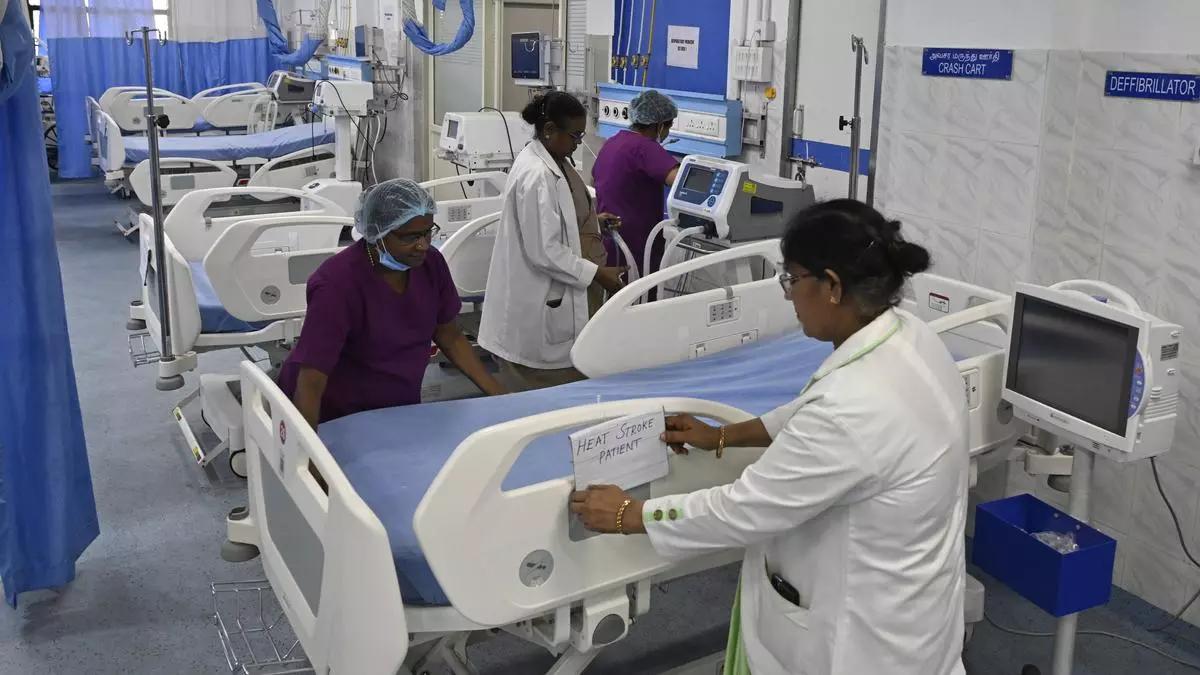Holistic healthcare
Over the past decade, Bharat has embarked on an unprecedented endeavour of speed and scale to transform the health sector.
The government’s relentless efforts have been instrumental in enhancing infrastructure and delivery to improve access, affordability and quality of healthcare.
The focus is on creating a healthcare system that is citizen-centric, inclusive and provides holistic healthcare to all.
Provisioning of affordable, accessible and quality health care services forms the bulwark of this effort.
The launch of the Ayushman Bharat-Pradhan Mantri Jan Arogya Yojana (AB PMJAY) in 2018 marked a significant leap toward achieving this goal.
PMJAY, the world’s largest health assurance scheme, offers financial protection of ₹5 lakh per family per year for secondary and tertiary care hospitalisation at a network of 30,000 hospitals (including over 13,000 private ones).
The beneficiaries
It benefits approximately 55 crore individuals, covering 12.
34 crore families.
The scheme has authorised over 7.
8 crore hospital admissions, amounting to over ₹1 lakh crore.
Now, the nation is poised to include all senior citizens 70 years and above, regardless of the socio-economic status, as beneficiaries of AB-PMJAY.
Approximately 4.
5 crore families and 6 crore senior citizens will now have access to cashless services under PMJAY.
Another ambitious effort under the Ayushman Bharat umbrella is Pradhan Mantri Ayushman Bharat Infrastructure Mission (PM-ABHIM) launched in 2021 with an outlay of ₹64,000 crore over six years.
In order to create a large infrastructure for healthcare, research and pandemic preparedness, PM-ABHIM aims to develop 575 critical care hospital blocks with a total capacity of more than 35,000 such beds.
It is also planned to establish over 2,000 block level public health units, 700 integrated public health labs in districts, 30 branches of National Centre for Disease Control (NCDC) along with five regional centres, 16 metropolitan health surveillance units, a national institution for One Health, four new national institutes for virology (presently only one), and a nationwide network of new bio-safety level (BSL) three and four labs.
During the Covid pandemic, CoWIN platform played a cardinal role in implementing the Covid vaccination program that delivered over 220 crore doses.
The government is now launching the U-WIN web-portal for complete vaccination delivery and record of pregnant women and children from birth to 17 years under the Universal Immunization Programme (UIP).
The services of this new digital platform in 11 languages include ‘anytime access’ and ‘anywhere’ vaccination services, self-registration, automated SMS alerts, and a QR-based e-vaccination certificate.
As a matter of policy, India promotes holistic healthcare and an integrative approach that fosters mutually supportive medical systems, modern and traditional, working for the common objective of improving health of people.
A recent nationwide survey estimated that around 50 per cent people used Ayush medicines during the preceding one year, confirming the widespread acceptance of and faith in the traditional systems.
Ayush sector’s growth is driven by policy support, research, and international collaborations.
With a projected market potential of $200 billion in five years, infrastructural advancements and global outreach and branding continue to propel growth.
An important role in this aspect will be played by the WHO Global Traditional Medicine Centre launched recently at Jamnagar.
The massive efforts in the last decade to transform healthcare infrastructure and delivery demonstrate the government’s resolve to develop a health system that ensures UHC and meets international benchmarks – in reach, quality and outcomes.
The writer is Member (Health) NITI Aayog.
Views expressed are personal.

